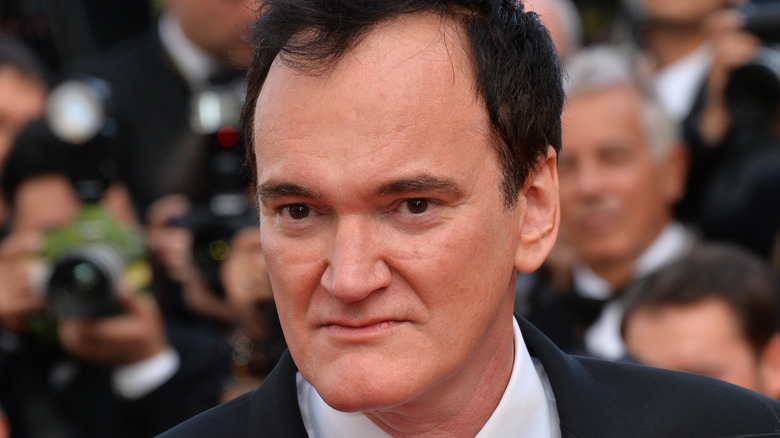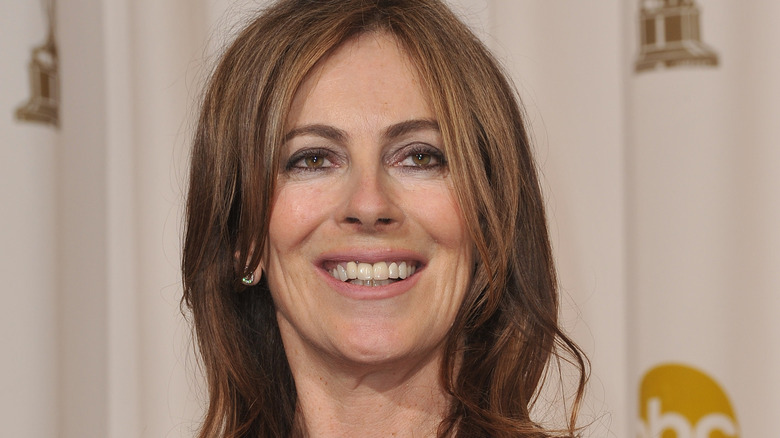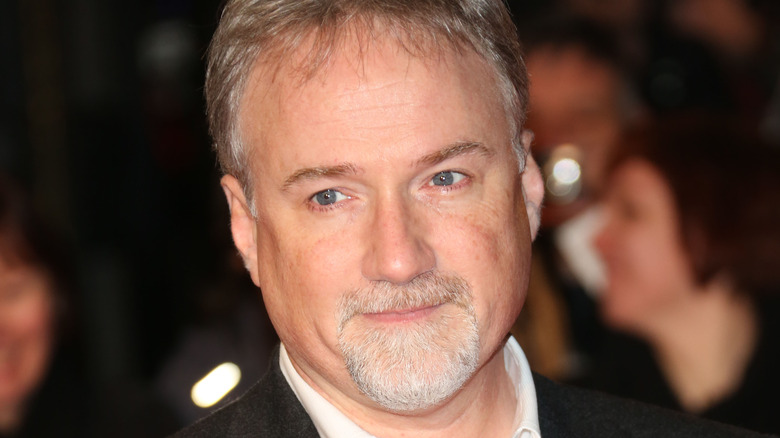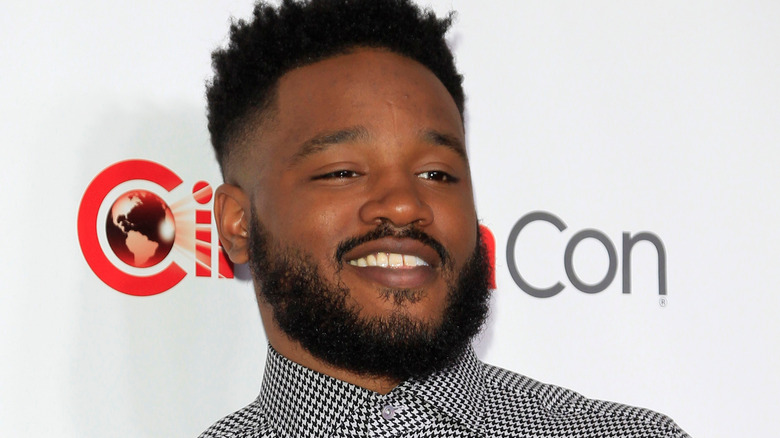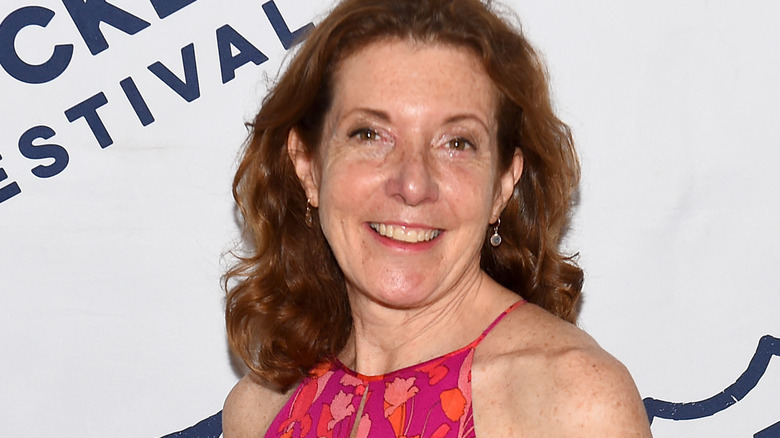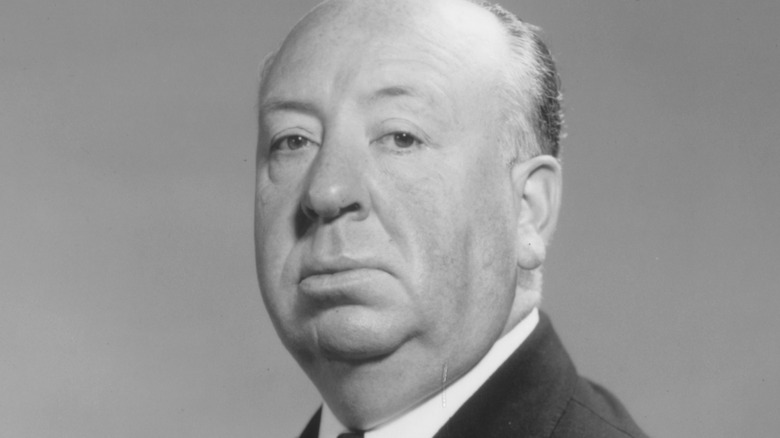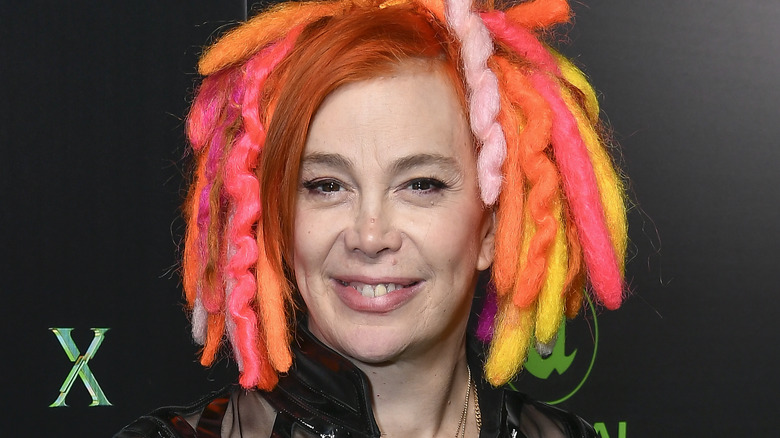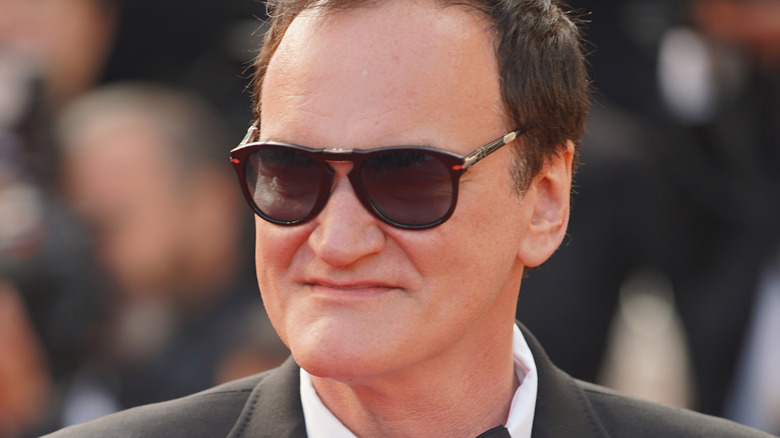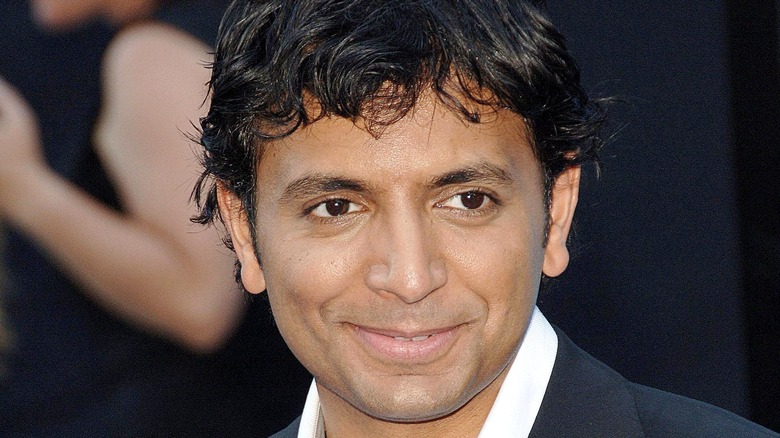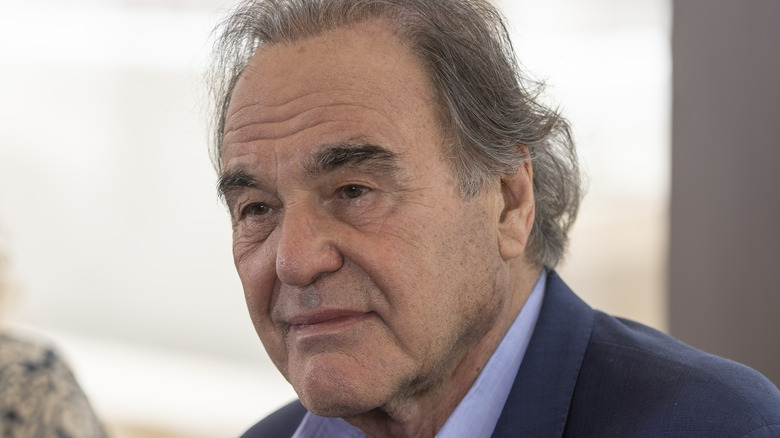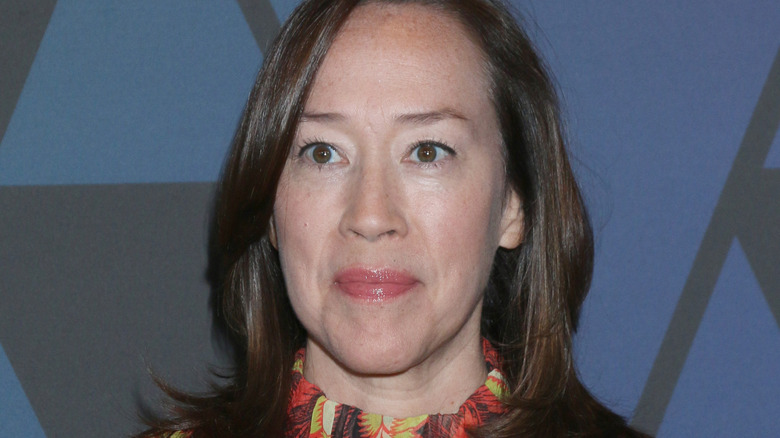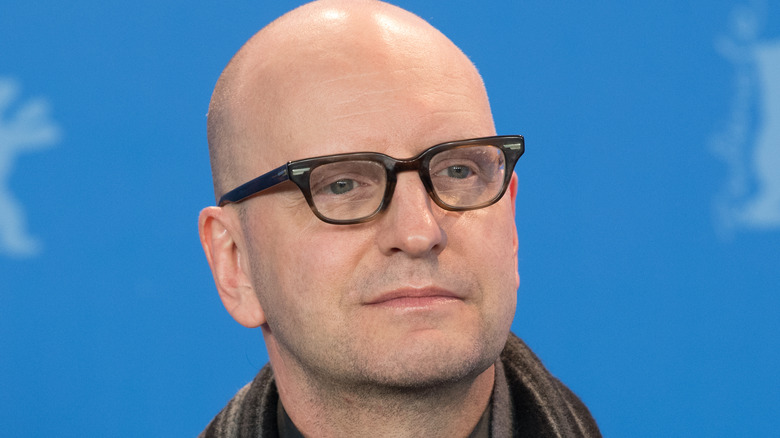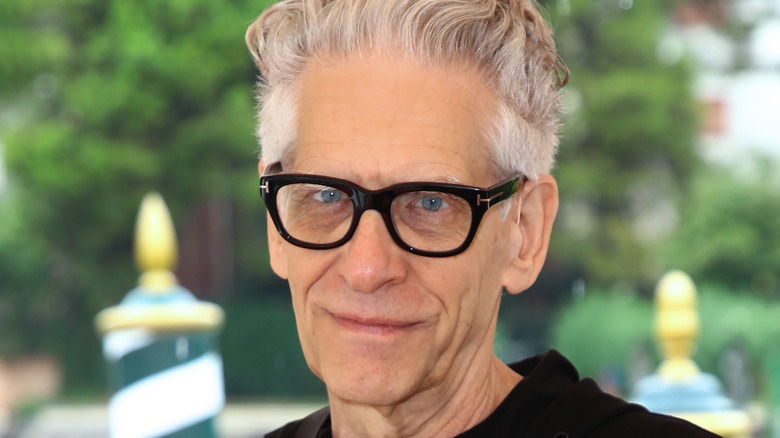Surprising Directors Who Turned Down Franchise Films
There was a time when working on big blockbuster franchises was the purview of a certain kind of filmmaker, and it was decidedly not the Oscar-winning kind. But over the years, the perception of billion-dollar movies and long-running franchises has changed. Today, some of the most well-reviewed and highly respected films coming out of Hollywood are action movies, comic book adaptations, and pulp adventures. In fact, some of the most highly revered auteur directors have helmed these massive franchise films, with Ryan Coogler bringing us "Black Panther" and Christopher Nolan making an entire trilogy of Batman films.
But beyond those that actually have done it, there are plenty more who have dipped their toe in the water, only to get skittish at the last moment. Whether due to creative differences, bad timing, or a personal grievance, complications have cost us some collaborations that would have shaken Hollywood. Believe it or not, a number of these acclaimed, award-winning directors came close to helming the biggest franchises.
Well, if you've ever wondered who almost directed a "Star Wars" movie, or how different "Harry Potter" might have been, check out this list of surprising directors who turned down major franchise films.
Kathryn Bigelow (James Bond)
Oscar-winning director Kathryn Bigelow, who took home the trophy in 2010 for the war drama "The Hurt Locker," has long been a favorite of fans to helm an installment in the James Bond series. She made it on a list of fan picks published by The Guardian in 2017, and made The Mary Sue's list of women directors who they wanted to see helm "Bond 25" when it was in the works in 2018. But what many fans of the franchise might not know is that Bigelow could have had the gig if she'd wanted it. As it turns out, she was urged by Sony studio boss Amy Pascal to get in the director's chair for a 007 film back when Pascal was in charge of the studio, a fact revealed in a report by Variety just after the release of her film "Detroit."
The director's experience on "The Hurt Locker" and "Zero Dark Thirty" clearly appealed to the studio, who must have felt the timing was right to give her a big franchise film. Unfortunately, it sounds like the director herself just wasn't very interested. "Those opportunities are out there, and I'm grateful," Bigelow told Variety. "I'm just more drawn to a journalistic aspect of film. That opens up very specific avenues as opposed to more comforting avenues. It's a responsibility I'm excited to pursue, whereas something that has less content is less compelling to me."
David Fincher (Star Wars)
There have been plenty of big name filmmakers who nearly helmed a "Star Wars" movie, from Ron Howard, who was approached to helm "The Phantom Menace" thanks to his close friendship with George Lucas (via Inverse), all the way to Colin Trevorrow, who was booted from "Episode IX." But one name you might not have expected to be in line to direct a story in a galaxy far, far away is David Fincher, the Academy Award-nominated director of "Fight Club" and "Se7en." But believe it or not, it almost happened during the development of the ninth installment.
According to the director himself, he was brought in to discuss the possibility of taking over for Trevorrow following the divisive fan reaction to "The Last Jedi" and "Solo," which left Lucasfilm and Disney scrambling to right the ship. On an Empire podcast, he spoke about the possible deal (transcribed in a report by Den of Geek). "I talked to [Kathleen Kennedy, President of Lucasfilm] about that and, look, it's a plum assignment," said the director. "But I can't imagine the kind of intestinal fortitude one would have to have following up the success of these last two [blockbuster films]. That's a whole other level."
The "Mindhunter" producer ultimately passed on the project, and Kennedy turned back to her "Force Awakens" helmer JJ Abrams, who signed on and ultimately directed the final chapter in the sequel trilogy.
Ryan Coogler (Coming 2 America)
Director Ryan Coogler hit Hollywood with a splash, with his first feature film "Fruitvale Station" garnering rave reviews. The film, which starred Michael B. Jordan, got Coogler noticed by Sly Stallone, who worked with Coogler and Jordan on the 2015 "Rocky" spin-off "Creed," continuing the legacy of one of cinema's greatest franchises. Coogler's next film, still just the third in his career, was an even bigger leap, vaulting him into the mighty Marvel Cinematic Universe with "Black Panther," a film that once again featured Michael B. Jordan.
But despite all the franchise fare that Coogler has been a part of, he almost directed another, coming close to overseeing the Eddie Murphy legacy sequel "Coming 2 America." According to Murphy in an interview with the New York Times, it was Coogler who approached him with a concept for a new story in the series. Though a talented young director on the rise, Murphy wasn't convinced by the story he had in mind, because of course Coogler wanted to cast his friend Michael B. Jordan in the lead role.
"[Coogler] had an idea for Michael B. Jordan to play my son and he would be looking for a wife," says Murphy. "I was like, then the movie would be about the son, it's not our characters, we already did that." Eventually, "Hustle and Flow" director Craig Brewer took the helm, with Murphy and most of the original cast back reprising their roles.
Susanna White (Tarzan)
Studios have often looked to television to find the next director for a blockbuster franchise, rising names who are looking for a big break and may be more willing to be collaborative than established auteurs. Well, when Warner Bros. was looking to revive the legacy of "Tarzan" back in 2012, one of the many names that popped up was Susanna White, who had directed episodes of "Bleak House," "Generation Kill," and "Boardwalk Empire." She'd also just come off her first major feature, the children's fantasy sequel "Nanny McPhee and the Big Bang," proving she could work on a big studio film, and she seemed primed for a major project like "Tarzan."
According to a report by /Film that year, the studio was zeroing in on White as a potential director for a big budget revival of the jungle hero, with "Harry Potter" director David Yates also in the mix. White, however, wouldn't wind up taking the project, and she would turn back to television for episodes of "Billions" and "Masters of Sex," as well as a pair of independent features. Warner, meanwhile, would finally get Tarzan swinging in 2016, with Yates in the director's chair. It may have been for the better for White that she passed on the film, as the revival was a total flop and Yates returned to the Wizarding World, directing three "Fantastic Beasts" movies.
Alfred Hitchcock (James Bond)
Arguably one of the greatest directors of all time, Alfred Hitchcock practically reinvented the art of film, and is responsible for some of the greatest movies in cinema history. Across groundbreaking thrillers like "The Birds," "Rear Window," and "Vertigo," Hitchcock developed many of the techniques that have since become common practice. But back in the late 1950s, he almost added his revolutionary talent to what has since become one of Hollywood's biggest franchises: James Bond.
Back when the would-be cinematic institution was first getting off the ground, Hitchcock was approached to take the helm of the spy hero's first big screen outing. According to a look back by Variety, it was Bond creator and author Ian Fleming himself who approached the acclaimed director about taking the helm of what would later become "Thunderball" (rather than the movie that ended up coming first, "Dr. No").
It wasn't specifically a lack of interest from Hitchcock that led him to turn down the project. According to film historians, it was Hitchcock's desire to do something different after having just directed a spy thriller of his own, "North by Northwest," that led him to pass. Instead, he turned his attention to an adaptation of a novel by a different author, Robert Bloch — a little movie called "Psycho."
The Wachowskis (Conan the Barbarian)
After their first Hollywood screenplay became the Richard Donner-directed action movie "Assassins" starring Sylvester Stallone and Antonio Banderas, and following their directorial debut on "Bound," Lana and Lilly Wachowski had their career-defining moment with "The Matrix" in 1999. Finding themselves the hottest filmmaking duo in Hollywood after the film became an unexpected cultural phenomenon, the Wachowskis were looked at for a number of projects. While they worked on a pair of sequels to their own film, studios began courting them for other projects, one of which was a reprise of the "Conan" sword-and-sandal franchise once led by action hero Arnold Schwarzenegger.
In 2000, the Wachowskis signed up to develop a new film for the warrior hero with John Milius, writer and director of the original 1982 classic, "Conan the Barbarian." Though Milius was planning to write and direct, the Wachowskis would help shape the story, style, and tone of the film, with Arnold Schwarzenegger planned to return for what was then titled "King Conan: Crown of Iron." Of course, around the same time, Arnold was elected Governor of California, which put the project on the back burner. As reported by IGN, with development at a crawl, the Wachowskis left the project in 2004, citing creative differences with Milius. Later comments from the directing duo, however, made clear that the conflict may have been a bit more than that, suggesting that Milius' politics may have played a part in their fractured relationship.
Quentin Tarantino (Star Trek)
Auteur director Quentin Tarantino may be one of the most celebrated filmmakers of the last 50 years, helming some of the most beloved movies of his era. This includes the generation-defining "Pulp Fiction," the World War II thriller "Inglorious Basterds," and the genre-bending "Kill Bill." Tarantino has a flair and style that cannot be replicated, but his films have become cultural touchstones and watershed works that sparked plenty of imitators. He has never directed a movie he didn't write, and while he's contributed to some franchises on the small screen, he's never been a part of a major blockbuster movie series ... but he very nearly was.
Flashing back to 2015, an off-the-cuff remark about his love for the classic "Star Trek" television series and his potential interest in helming a "Trek" film led to Paramount reaching out to see if he was serious. As it turns out he was, and before long the director was working with a writer on a possible sequel to the films by J.J. Abrams, with talk of a big budget adaptation of the 1967 episode "A Piece of the Action." Initially, Tarantino was even considering stepping behind the camera to direct the film himself, which created serious buzz in the "Star Trek" fandom. Eventually, talk fizzled, and he was to be little more than a producer, before the project fell apart altogether. Today, the project is just a footnote in the franchise, one of the many unrealized "Star Trek" movie concepts that have come and gone over the years.
M. Night Shyamalan (Harry Potter)
Whenever a new director has a big unexpected success, studios come calling to get them to work on a big franchise film. M. Night Shyamalan — whose breakout "The Sixth Sense" landed in 1999 — was no exception. Not long after the Bruce Willis thriller became a surprise hit, Shyamalan was approached by Warner Bros. to helm the first film in their upcoming "Harry Potter" series, "The Sorcerer's Stone." He turned it down, though, opting to focus on his own movie "Signs" instead. Director Chris Columbus would eventually nab the job, and "Harry Potter" was off and running.
But that wouldn't be the end for Shyamalan's involvement with the Wizarding World, as Warner Bros. wasn't ready to give up on the director so easily. A few years later the studio approached him again, this time to sit in the director's chair for the third film in the series, "The Prisoner of Azkaban," which he also passed on in favor of "The Village." But if you think Warner Bros. was ready to give up, think again, because they tried knocking on his door a third time when they were readying the fourth film, "The Goblet of Fire," and he once again said no.
We're not sure whether he wasn't a fan of the material or if he really was just too busy, but fans of "Potter" can only wonder what might have been had Shyamalan been behind the camera for even one of the films in the series.
Oliver Stone (Planet of the Apes)
When it comes to big-name Hollywood studio directors of the last 50 years, there are few you'd less expect to be involved in a major blockbuster franchise than Oliver Stone. The filmmaker behind such classics as "Platoon" and "Wall Street" has a penchant for serious, dramatic fare, and in particular historical epics and biopics. This includes "The Doors" starring Val Kilmer, "JFK" with Kevin Costner, and "Born on the Fourth of July" with Tom Cruise. But in the late '90s, Stone almost took the reins of one of the most popular science fiction series ever, developing what would have been a big budget reboot of "Planet of the Apes."
Not only is Stone an unexpected filmmaker to almost sign on to this sort of project, but the planned relaunch might be the biggest un-produced blockbuster on this list. First announced in 1994 (per Entertainment Weekly), the film was being developed as a reimagining of the original, and was to have starred none other than Arnold Schwarzenegger, hot off his James Cameron hit "True Lies." It would have been executive produced by Stone and directed by Philip Noyce ("Clear and Present Danger"), with Arnold playing a geneticist who travels through time to a world of intelligent apes in an effort to save the human race.
With the former "Terminator" star, the movie was expected to be an over-the-top action vehicle, featuring the muscle-bound hero doing battle with tribes of warrior apes. Alas, the film fell apart after languishing in development hell, and what we ended up with was Tim Burton's disappointing remake in 2000.
Karyn Kusama (Dracula)
For decades, Universal Pictures has been trying to resurrect the classic monsters, and their success has been spotty. Outside of a successful trilogy beginning with 1999's "The Mummy" starring Brendan Fraser, their record has been dotted with failures like "Dracula Untold," "Van Helsing," "The Wolfman," and a reboot of "The Mummy." But the success of the low-budget reimagining of "The Invisible Man" from Blumhouse in 2019 sparked a new approach, and one of the first projects developed after that Elisabeth Moss film was a new version of "Dracula." To helm the film, indie director Karyn Kusama was selected.
With a mix of TV and film under her belt, Kusama might not have the most recognized name in Hollywood, but you surely know her work. Her 2009 horror film "Jennifer's Body" has become a cult classic, and she executive produced the acclaimed series "Yellowjackets" for Showtime in 2021. She signed on to a new adaptation of the Bram Stoker classic in 2020 (via Variety), which would have been a modern day interpretation focused on Mina Harker and her love affair with a mysterious man named Vladmir. After Emmy and Grammy Award-winner Jasmine Cephas Jones nabbed the lead role, however, Kusama dropped out of the project due to the always nebulous "creative differences," according to a report from Deadline in April of 2022.
Stephen Soderbergh (James Bond)
Director Steven Soderbergh might be best known for his trilogy of "Ocean's" films. These slick, stylish reinvention of the classic heist movie starred George Clooney, Brad Pitt, Matt Damon, Julia Roberts, Bernie Mac, and others filling the shoes of the Rat Pack. But in the mid 2000s, it seems another action franchise wanted Soderbergh's services rather badly, with the studio behind James Bond offering him the director's chair on more than one occasion.
As reported by /Film in 2020 (by which time rumors had circulated about the director's potential involvement for years), Soderbergh finally acknowledged it publicly. "Yeah. I love that world," said the filmmaker in an episode of the "Happy Sad Confused" podcast that had then recently debuted. The director admitted that he had been offered the job by producers of the super-spy franchise at least a couple of times. "I think we were at odds about some things that were important. We had some great conversations, and it was fun to think about. But ... we just couldn't do it. We just couldn't figure it out."
It seems Soderbergh moved on because he wasn't being offered the level of control he was looking for, but no reason for his departure was ever made official. But given the way he's talked about it, it's clear he has a soft spot for the franchise, so perhaps one day it could still happen.
David Cronenberg (Star Wars)
The story of David Lynch being approached by George Lucas to helm "Return of the Jedi" is practically legendary. But did you know he wasn't the only offbeat alternative that Lucas had considered for the threequel before settling on Richard Marquand? In fact, after getting turned down by his friend Steven Spielberg, he gave a call to David Cronenberg, who had recently had success on the low-budget sci-fi horror movie (and future cult classic) "Scanners."
Yes, years before Cronenberg would hit it big with his remake of "The Fly" with Jeff Goldblum, he could have found himself rounding up the creatures of Jabba's palace. In 2018, the director himself recalled in an interview with Entertainment Weekly how it almost happened. "I still recall getting a phone call. Somebody said that they were from, I guess it was Lucasfilm," Cronenberg told the magazine, reminiscing on what might have been. "[They] asked me if I was interested in — at that point it was called 'Revenge of the Jedi' ... I was asked if I would be interested in considering that, and meeting with everybody." But it seems the young director wasn't as excited as Lucas might have expected. "I said, 'Well, I'm not used to doing other people's material.' And there was like a stunned silence and then 'click' — hang up."
Though it never got past that initial phone call, Cronenberg certainly had the talent and the vision to meet George Lucas' lofty standards, and it's very possible he'd have gotten the job if he'd wanted it.
